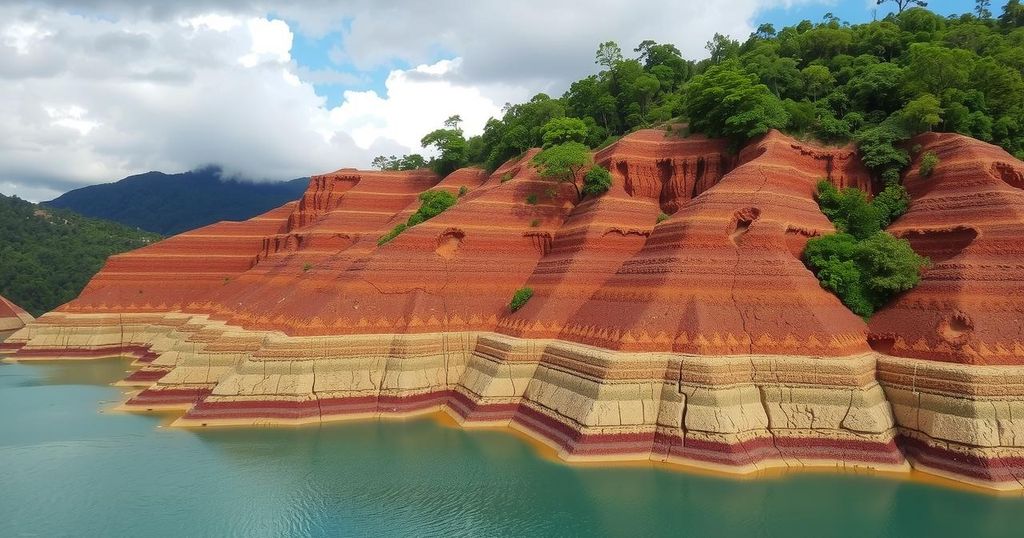New Mining Legislation in El Salvador Opens Doors for Gold Exploitation

El Salvador’s Legislative Assembly has approved a new mining law, allowing gold exploitation and repealing a previous ban on metallic mining. President Bukele claims the country can harness its $3 trillion gold reserves to improve the economy. However, environmental activists raise concerns over potential ecological damage, with skepticism regarding the accuracy of the government’s gold reserve estimations. Yukele has invited international geologists to assess the situation.
On Monday, the Legislative Assembly of El Salvador enacted new metallic mining legislation, enabling gold exploitation within the country. This development, long hinted at by President Nayib Bukele, faces significant backlash from environmental activists concerned about its potential ecological impact. The revised legislation revokes the previous ban on metallic mining, allowing the state to monopolize these activities. It lays the groundwork for partnerships with foreign companies to jointly extract gold, aiming to capitalize on the country’s substantial mineral wealth estimated at $3 trillion.
President Bukele has criticized the former prohibition on mining, asserting it was “absurd” for El Salvador to maintain such restrictions while being resource-rich. He outlines plans to rationally utilize these resources to enhance the nation’s economy and living conditions. Despite the optimism surrounding the mining potential, environmental advocates warn against the detrimental consequences of such operations. Andrew McKinley, an environmental advocate, cautioned that extensive mining could severely scar the landscape, akin to “turning El Salvador into the Moon with its craters everywhere in a very short period.”
Moreover, skepticism persists regarding the gold reserve data presented by the government. Observers, like Pedro Cabezas from the Central American anti-mining organization Acafremin, question the accuracy of claims, suggesting that the information might be exaggerated. In a bid for transparency, President Bukele has welcomed the assessment of the country’s gold deposits by foreign geologists, indicating a willingness to validate the data and explore extraction feasibility.
In recent years, El Salvador has navigated a contentious relationship with mining, especially concerning its extensive gold reserves. Former legislation prohibited metallic mining in response to environmental concerns. However, under President Bukele’s administration, there has been a shift towards exploiting these natural resources, which the government believes could significantly bolster the economy. This pivot arises against the backdrop of rising global interest in precious metals and the potential for foreign investment within the mining sector. Nevertheless, environmental advocates remain vigilant about the consequences that increased mining activity may pose to the country’s delicate ecosystems.
The legislative approval of metallic mining in El Salvador marks a pivotal moment in the country’s resource management strategy, offering prospects for economic growth through gold extraction. Nonetheless, the backlash from environmentalists highlights the inherent tensions between economic development and environmental stewardship. As El Salvador opens its doors to foreign investment, the government must navigate these concerns to ensure that the benefits of mining do not come at an unsustainable ecological cost. Ongoing scrutiny and assessment of both the economic claims and environmental impact are essential as this new chapter unfolds.
Original Source: news.bitcoin.com







